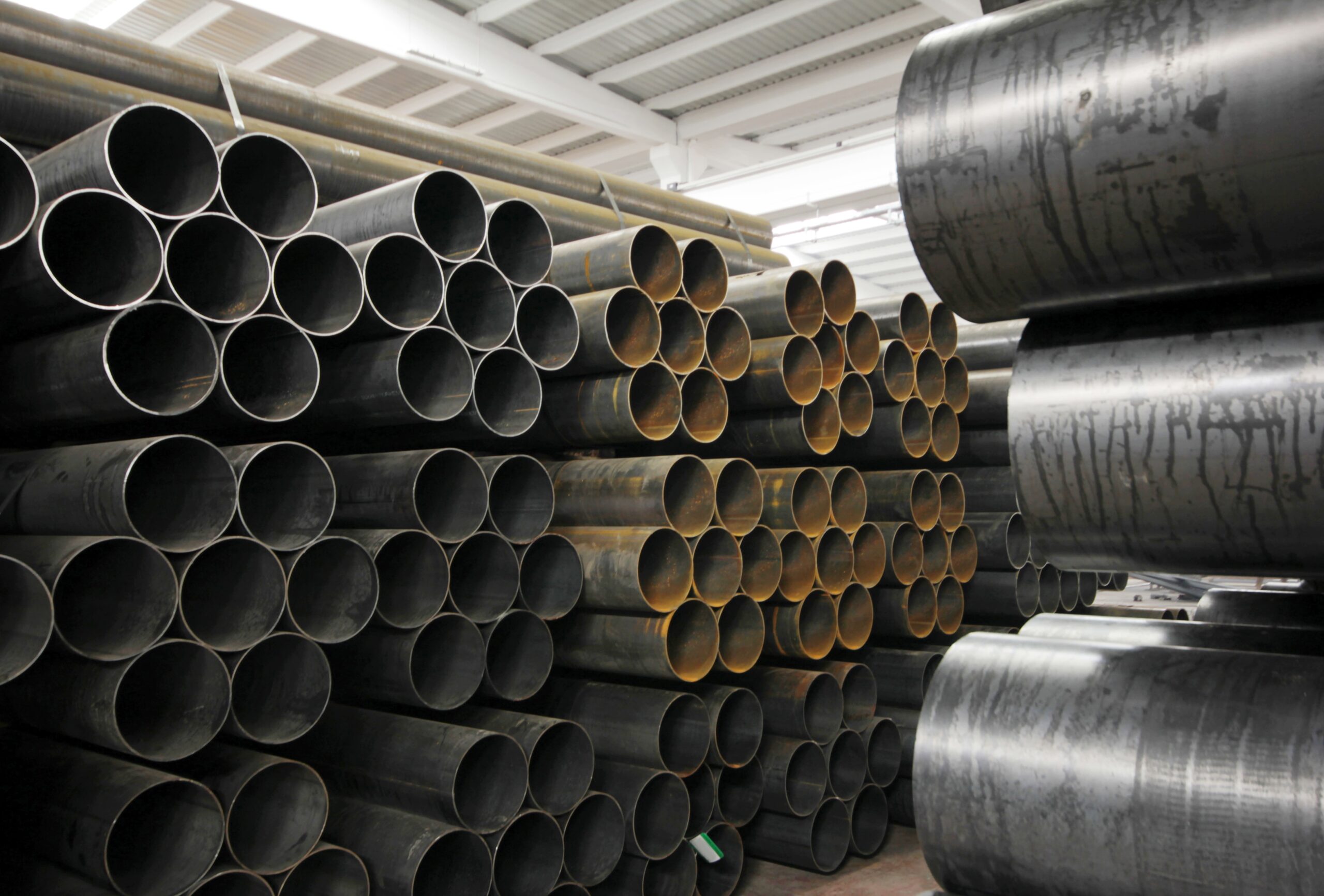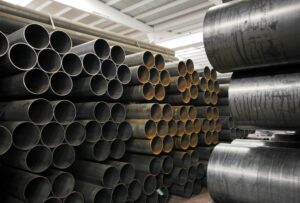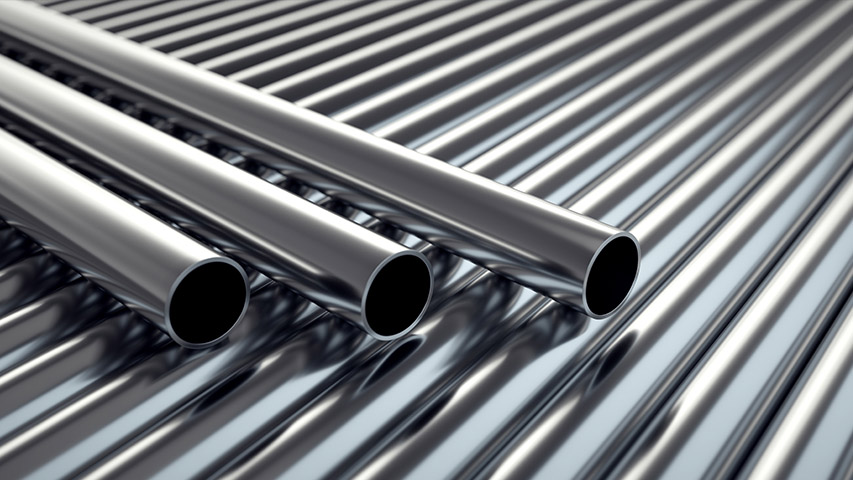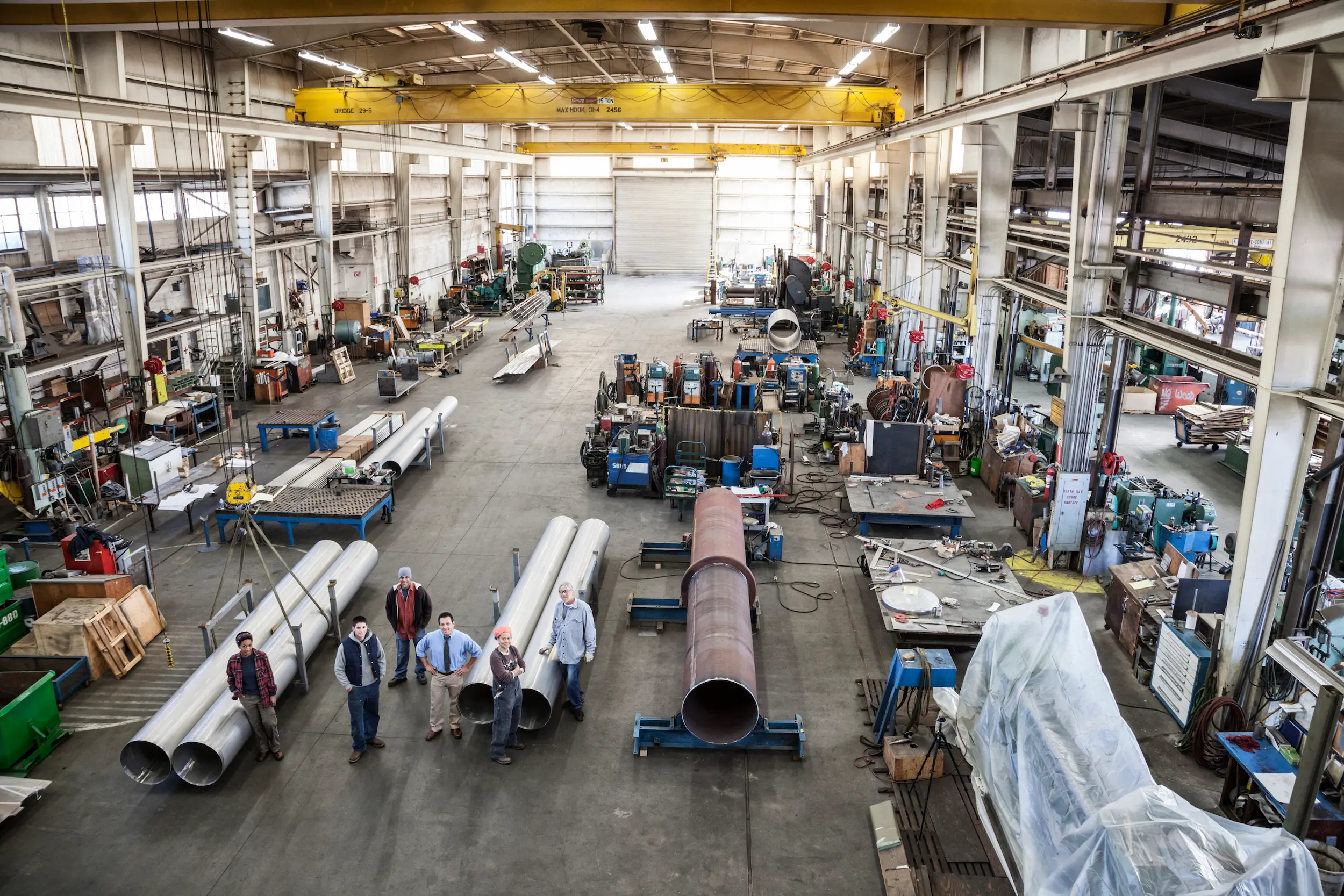Carbon Steel Pipe Price Per Kg – Sachiya Steel International Private Limited
A wide variety of industries such as construction, manufacturing, oil and gas, power generation, and infrastructure development utilize carbon steel pipes for its strength and versatility. Even with the scaled down industrial projects, the cost effectiveness of the material makes it easier to integrate in commercial projects. Having a proper understanding on the carbon steel pipe price per kg is crucial for any project. The costs tend to vary based on the price of raw materials, prevailing market scenario, demand on the market, and even the methods of manufacturing used.
Being aware of the current price enables accurate budgeting and informed purchasing decisions. This decision aids project execution in a timely and streamlined manner. In this article, we will analyze current pricing trends, the types and quality of carbon steel pipes, regionwise pricing variation and set price determinants, and finally the pricing strategy and procurement optimization to be employed.

Current Carbon Steel Pipe Price Per Kg (India – 2025)
Below is a sample price list as of April 2025. Please note that prices vary slightly depending on region, supplier, and quantity.
| Pipe Type | Size (OD) | Thickness (mm) | Price Per Kg (INR) |
| ERW Carbon Steel Pipe | 1/2″ | 2.5 mm | ₹72/kg |
| ERW Carbon Steel Pipe | 2″ | 3.2 mm | ₹70/kg |
| Seamless Carbon Steel Pipe | 1″ | 3.0 mm | ₹110/kg |
| Seamless Carbon Steel Pipe | 4″ | 5.0 mm | ₹105/kg |
| Hot Rolled Carbon Steel Pipe | 6″ | 4.0 mm | ₹95/kg |
| Black Carbon Steel Pipe (IS 1239) | 3″ | 3.6 mm | ₹80/kg |
| GI Coated Carbon Steel Pipe | 1.5″ | 2.9 mm | ₹90/kg |
The average carbon steel pipe price per kg in India ranges from ₹70 to ₹110 depending on the specification.
Price Comparison of Carbon Steel and Other Pipe Materials
| Material Type | Average Price Per Kg (INR) | Pros | Cons |
| Carbon Steel Pipe | ₹62 – ₹120 | Strong, cost-effective | Susceptible to corrosion |
| Stainless Steel Pipe | ₹200 – ₹300 | Corrosion-resistant, durable | Expensive |
| PVC Pipe | ₹50 – ₹70 | Lightweight, cheap | Low strength, heat-sensitive |
| Copper Pipe | ₹600+ | Excellent corrosion resistance | Very expensive |
| HDPE Pipe | ₹80 – ₹110 | Corrosion-resistant, flexible | Not suitable for high temp |
Regional Pricing Differences in India
Prices of carbon steel pipes also vary across Indian cities:
| City | Mild Steel Pipe Price (Per Kg) | Seamless Pipe Price (Per Kg) |
| Mumbai | ₹65 – ₹75 | ₹95 – ₹115 |
| Delhi | ₹64 – ₹72 | ₹92 – ₹110 |
| Chennai | ₹66 – ₹76 | ₹94 – ₹118 |
| Kolkata | ₹63 – ₹70 | ₹90 – ₹112 |
| Ahmedabad | ₹64 – ₹73 | ₹91 – ₹113 |
How to Get The Most Competitive Carbon Steel Pipe Price Per Kg
As simple as it may seem, obtaining the carbon steel pipe price per kg requires more than checking just a price list. A savvy customer would need to combine a strategy or two to still obtain value for their money. Here are simple but crucial pointers to assist you in making the correct decisions:
1. Make Sure To Gather Several Quotes
Settle with none until you feel satisfied with the quote that you have secured. Try to reach out to at least 3 to 5 suppliers both locally and from other regions. Checking the market will help you understand where to get the best carbon steel pipe price per kg and be able to analyze the price range you get from all suppliers.
2. Purchasing In Bulk
There is usually an advantage when one purchases in bulk. More often than not, suppliers will give discounted rates on bulk orders because it saves them on packing and shipping costs. If you can, try self combining your purchases for more savings on the carbon steel pipe price per kg.
3. Sourcing From Regional Suppliers
Purchasing from suppliers within your region reduces transport and handling costs. This also means that suppliers around you will be able to offer better deals and faster delivery. This further minimizes the carbon steel pipe price per kg.
4. Request for Material Test Certificates (MTCs)
When purchasing pipes do not forget to ask for their accompanying test reports. These certificates guarantee the grade and kind of carbon steel. Having the proper material ensures that there are no undue problems or expenses in the future, maintaining your carbon steel pipe price per kg consistently.
5. Monitor Trends In The Steel Market
Steel prices constantly fluctuate due to the cost of raw materials, international occurrences, and the level of demand. Monitor market developments and purchase while prices are low; this will enhance your chances of obtaining a better carbon steel pipe price per kg.
6. Reconsider These Expenses: Transport
Some suppliers would incorporate transport expenses in the total pipe price. If you can provide your own transport, get in touch with them for an outright no delivery quote. This reduces your total carbon steel pipe price per kg.
7. Hunt for Undersized Pieces or Additional Inventory
Certain suppliers have excess or leftover inventory that they sell at a discount. While these do not work for all projects, they are ideal for smaller, less complex tasks. This reduces your carbon steel pipe price per kg.
8. Opt-Select Standard Sizes
Selecting custom-sized pipes is often more expensive because of added wastage in cutting. Choosing standard sizes minimizes production time with savings on stocking and yields lower carbon steel pipe costs per kilogram.
9. Develop Strong Connections with Suppliers
A trusted supplier who has a working relationship can provide better-than-average pricing, preferential treatment, and advanced discounts not available to others. This has the potential to reduce the average carbon steel pipe costs per kilogram.
10. Look at The Bigger Picture
Avoid focusing exclusively on obtaining the lowest average carbon steel pipe prices per kilogram. Sometimes, more expensive options may alleviate the need for ongoing maintenance, repairs, and replacements, making them cheaper in the long term.
These simple tips should allow you to maneuver your budget decisively, making it easy to maintain a low figure on the price of carbon steel pipes per kg for your project.
What Affects the Carbon Steel Pipe Price Per Kg?
Knowing all of the concerns that affect the pricing of carbon steel pipes can assist a prospective buyer to manage spending efficiently and come out with the best offer. Let’s discuss each element that can potentially affect the pricing:
1. Cost of Input Materials
The building blocks of carbon steel pipes are composed of iron ores, cokes and even scraped steel. The impact of mining’s stockpiles, international relations, and policies on the environment can affect the pricing per kilogram of steel pipes. Moreover, the prices of raw materials within the market also control value. For example, the recent increase of global marketplace in iron ore leads to an immediate growth in the cost of steel and in consequence more expensive pipes.
2. Method of Creating and Using Technology
The way through which the pipes are manufactured will impact the pricing directly:
- Seamless Carbon Steel Pipes are made devoid of welding seams and require complex techniques like extrusion or rotary piercing. It is worth noting that this increases the price per kilogram, especially in the case of high-pressure applications.
- ERW (Electric Resistance Welded) Pipes utilize the process of strip rolling and and welding of steel strips to form a pipe. These are used for water lines and general construction due to the economical manufacturing processes associated with ERW pipes. Consequently, the carbon steel pipe price per kg is cheaper than seamless pipes.
3. Grade of Carbon Steel
Lowers the carbon steel pipes prices per kg due to the ease of fabrication as well as abundant availability. Performance and cost of the steel changes proportionately based on the composition of carbon which results in different grades.
- Low Carbon Steel (Mild Steel): Due to the ductility offered with lesser carbon makes it the easiest to fabricate, thus making this is the budget friendly option.
- Medium Carbon Steel: As the name suggests, this grade provides good strength along with flexibility to the fabrication. Most commonly used in structural and automotive parts.
- High Carbon Steel: The increase in carbon does offer advantages like improved hardness and wear resistance, however with the benefits also comes an increase in price per kg per carbon steel pipe.
4. Pipe Dimensions
Thick walled or thicker diameter pipes require more raw material due to the increased processing and steel required. Additional heat treatments or forming techniques for the primary processing will increase the price per kg of carbon steel pipe.
5. Quantity Ordered
The scale of economy applies in this case. For instance, bulk orders of carbon steel pipes usually come at a reduced cost per kg since manufacturers can more efficiently produce and ship them in large quantities. On the other hand, smaller and custom orders may face higher prices due to setup time, material waste, and logistical idiosyncrasies.
6. Market Demand & Location
Mapping out the supply chain and assessing location demand is critical when considering the pricing of products. As an illustration, there is always increased demand for construction work in major cities which increases the raw material cost for carbon steel pipes. Also, regions that do not lie close to the manufacturers or ports of the manufactured goods tend to pay higher carbon steel pipes price per kg due to increased transport and handling costs.
7. Import Duties and Taxes
The price per kg of carbon steel pipes borders on the excessive side due to the customs duty, anti-dumping duty tax, GST, and port handling fee costs attributed to these pipes. The pipes are also subjected to numerous government expenses making them unreasonably priced, especially when sourced from countries that do not have a Free Trade Agreement (FTA).
8. Certifications and Compliance
Some projects have pipelines for which the international standards ASTM, API, IS, or DIN are mandatory. Though these certifications guarantee a certain quality and reliability of product, they add cost burden for the scrutiny, validation, and paperwork that has to accompany them. Such certifications can raise the base carbon steel pipe price per kg by 5 – 15 % depending on the standard.
9. Delivery Timeline
Other projects will impose restrictions that force the supplier to do express delivery, see to overnight processing, or even apply just-in-time logistics. Meeting such standards causes additional operational strain on the suppliers and partners dealing with logistics, which leads to increase in the total costs. Therefore, urgent orders tend to raise the carbon steel pipe price per kg even more than the usual margins.
How Carbon Steel Pipe Prices Have Shifted from 2020 to 2025
The carbon steel pipe market has experienced notable price fluctuations over the past five years, influenced by a range of global and domestic factors. Below is a breakdown of the price trend per kilogram during the 2020–2025 period:
- 2020: ₹55–65/kg
The onset of the COVID-19 pandemic led to a significant slump in industrial activity across the globe. Lockdowns, labor shortages, and a drop in construction and manufacturing demand caused carbon steel pipe prices to fall sharply. The supply chain disruptions further contributed to the volatility, leading to a temporary oversupply in the market.
- 2021: ₹70–85/kg
As economies gradually reopened and industries resumed operations, demand began to recover. Infrastructure spending increased, especially in developing countries, and with that, so did the need for carbon steel pipes. This recovery phase saw prices increase steadily, driven by renewed industrial activity and limited supply.
- 2022: ₹80–95/kg
This year marked a peak in demand for carbon steel pipes, particularly from sectors such as construction, oil and gas, and water infrastructure. Global steel prices surged due to high demand and constraints on raw material availability, such as iron ore and coal. This led to carbon steel pipe prices reaching one of their highest levels in recent years.
- 2023: ₹75–90/kg
In 2023, the market began to stabilize. Although demand remained strong, the supply chain became more balanced, and raw material prices plateaued. This led to a more stable price range for carbon steel pipes, providing some relief to industries that had been grappling with cost overruns in previous years.
- 2024–2025: ₹70–110/kg
The forecast for 2024 and 2025 indicates high volatility. The ongoing geopolitical tensions, freight rate hikes, and supply chain disruptions—particularly in maritime transport have created uncertainty in global steel markets. Raw material procurement challenges and fluctuating energy prices are likely to push prices to the higher end of the spectrum. However, temporary dips are also expected, depending on regional demand and supply adjustments.
A Comparative Overview of Carbon Steel vs. Stainless Steel Pipes
When choosing between carbon steel and stainless steel pipes, it’s essential to understand their properties, cost implications, and suitability for various applications. Below is a detailed comparison:
| Feature | Carbon Steel | Stainless Steel |
| Cost | ₹70–110/kg | ₹190–300/kg |
| Strength | High | High |
| Corrosion Resistance | Moderate (requires external coatings or linings) | Excellent (inherent resistance to rust and chemicals) |
| Weldability | Good | Good |
| Applications | Structural frameworks, general industrial piping, oil and gas, water transport | Food processing, pharmaceutical manufacturing, chemical plants, and sanitary applications |
| Lifespan | 20–30 years (with proper maintenance and coating) | 50+ years (minimal maintenance needed) |
Key Insights:
- Cost Efficiency: The use of carbon steel pipes comes with the advantage of affordability. At less than half the price of stainless steel per kilogram, carbon steel is used for construction, industrial pipelines, and other municipal water systems which require budget-friendly methods.
- Corrosion Resistance: Stainless steel is superior to carbon steel in highly corrosive environments because of its chromium content, which forms an oxide layer. However, if protective materials are adequately coated or lined, carbon steel can withstand these conditions.
- Maintenance Requirements: Though stainless steel is largely maintenance-free, carbon steel has a shorter lifespan and greater maintenance needs in harsh environments. It requires routine inspections, repainting, and recoating.
- Application Suitability: Often the deciding factor between the two steels is the specific industry and surrounding environmental conditions. For example, carbon steel is widely used in oil refineries, shipbuilding, and other structural applications, whereas stainless steel best serves hygienic and corrosive environments like food processing or medical facilities.
Conclusion
Sachiya Steel International Private Limited understands that for participants in construction, manufacturing, and infrastructure projects, knowing the carbon steel pipe price per kg is essential. As discussed throughout this guide, many factors influence pricing including raw material costs, market demand, logistics, manufacturing techniques, and pipe grade. Whether you’re comparing different pipe materials, sourcing from specific regions, or planning a bulk purchase, staying informed is key. It helps you make smart financial and operational decisions.
By following the strategies outlined in this article such as tracking market trends, selecting the right grade and dimensions, building strong supplier relationships, and choosing carbon steel pipes for their cost effectiveness and performance buyers can manage budgets more effectively. Understanding the price dynamics per kg allows you to balance cost and quality, ensuring your projects stay on track and within budget.
Carbon Steel Pipe

A wide variety of industries such as construction, manufacturing, oil and gas, power generation, and infrastructure development utilize carbon steel pipes for its strength and versatility. Even with the scaled down industrial projects, the cost effectiveness of the material makes it easier to integrate in commercial projects. Having a proper understanding on the carbon steel pipe price per kg is crucial for any project. The costs tend to vary based on the price of raw materials, prevailing market scenario, demand on the market, and even the methods of manufacturing used.
Product Brand: Sachiya Steel International
Product Currency: INR
Product Price: 70
Price Valid Until: 2027-09-16
Product In-Stock: InStock
5


